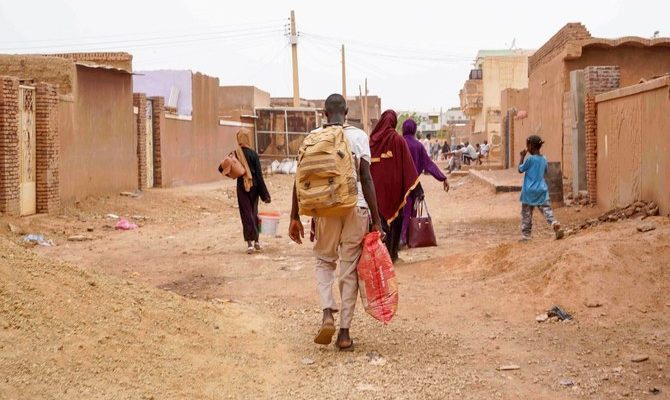The world continues to grapple with a pervasive humanitarian crisis – the ongoing refugee crisis. Millions of people, driven by various factors, are forced to flee their homes and seek refuge in foreign lands. The ongoing global refugee crisis is a multifaceted issue with complex root causes and profound consequences. While international efforts, including those by the UNHCR and various nations, are undeniably critical, there’s an ongoing debate about whether they do enough to meet the needs of displaced individuals and communities. If you’ve been playing live blackjack online casino, it’s time to get acquainted with the horrors that refugees face on a daily basis.
The Root Causes
The refugee crisis is a multifaceted issue with numerous root causes. One of the primary drivers is armed conflicts in various parts of the world. These conflicts, whether internal or international, displace countless individuals and families. Beyond conflicts, persecution, human rights abuses, and political instability in many regions are also significant factors that force people to become refugees.
While these factors are widely recognized, it’s essential to acknowledge that the causes are often deeply entrenched and difficult to resolve. Moreover, environmental disasters and climate change are increasingly contributing to displacement, amplifying the complexity of the crisis.
The Consequences
The consequences of the global refugee crisis are profound and, unfortunately, often inadequately addressed. On an individual level, refugees face dire circumstances, enduring hardships as they are uprooted from their homes and forced to adapt to unfamiliar conditions. Families are separated, and children’s education is disrupted, leading to long-term challenges.
At a macro level, host countries frequently bear the economic, social, and political burdens of accommodating refugees. Strains on resources and infrastructure can be substantial, and there may be societal tensions and concerns about security. These issues, when not adequately addressed, can exacerbate the already challenging circumstances that refugees face.
International Efforts: The Bare Minimum
The international community, including governments, organizations, and NGOs, recognizes the urgency of addressing the refugee crisis. However, while there are concerted efforts to alleviate the suffering of refugees, some would argue that these efforts often fall short of what is truly needed.
One of the key organizations involved in addressing the crisis is the United Nations High Commissioner for Refugees (UNHCR). They provide humanitarian assistance, advocate for refugees’ rights, and seek to find long-term solutions. Despite their work, funding shortfalls are a common issue, limiting the organization’s capacity to meet the needs of all displaced individuals.
Many countries have established refugee resettlement programs to provide safety to those in need. However, the number of refugees resettled is often a fraction of those in need, highlighting the limitations of these programs.
Efforts to address the crisis in conflict zones, such as the Middle East, often face diplomatic challenges. Finding peaceful solutions to ongoing conflicts can be a protracted and arduous process, and sometimes, the international community struggles to bring about lasting peace and stability.
The term “bare minimum” is not meant to belittle these efforts but rather to emphasize that the magnitude of the crisis often outpaces the resources and responses in place. Many argue that more substantial commitments and coordination are required to adequately address the global refugee crisis.
The Resilience of Refugees
Despite the immense challenges they face, refugees have demonstrated remarkable resilience and resourcefulness. Many refugees, when given the opportunity, contribute to their host communities, often enriching them culturally and economically. They establish businesses, pursue education, and actively engage in community life.
It’s important to highlight these stories of resilience, as they underscore the fact that refugees are not merely recipients of aid but also individuals with talents and aspirations. Recognizing and supporting the resilience of refugees can be a crucial step toward a more comprehensive response to the crisis.
The Need for a Comprehensive Approach
Addressing the ongoing refugee crisis requires a comprehensive approach that goes beyond immediate humanitarian relief. Efforts should encompass long-term solutions, including conflict resolution, poverty reduction, and sustainable development. Furthermore, global cooperation and shared responsibility are paramount in effectively addressing the crisis.
Advocates for refugees argue that a more equitable distribution of the burden among nations is needed, as some countries bear a disproportionately heavy load. By fostering a holistic approach that addresses root causes, promotes resilience, and encourages international cooperation, we can move closer to a more comprehensive solution to the global refugee crisis.









